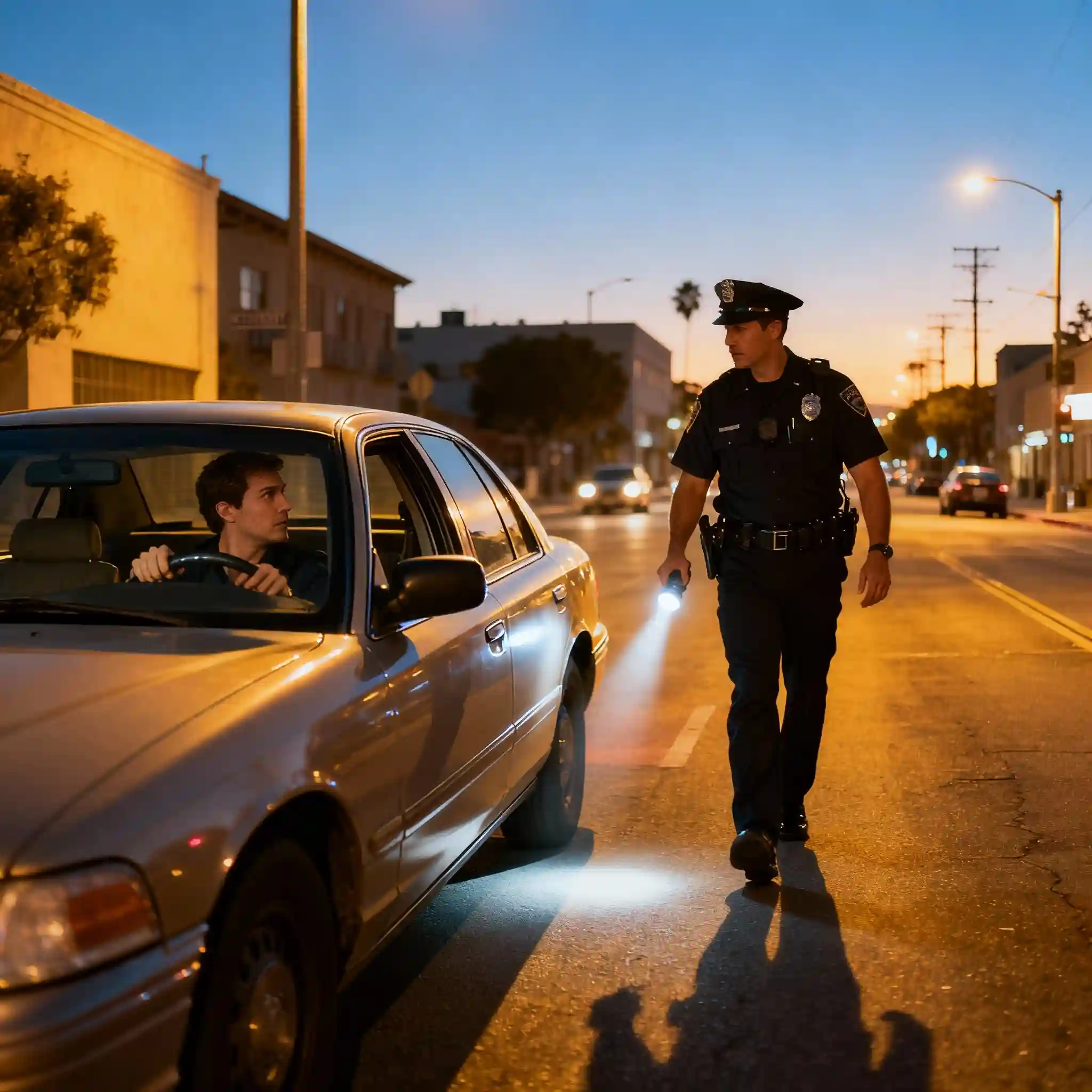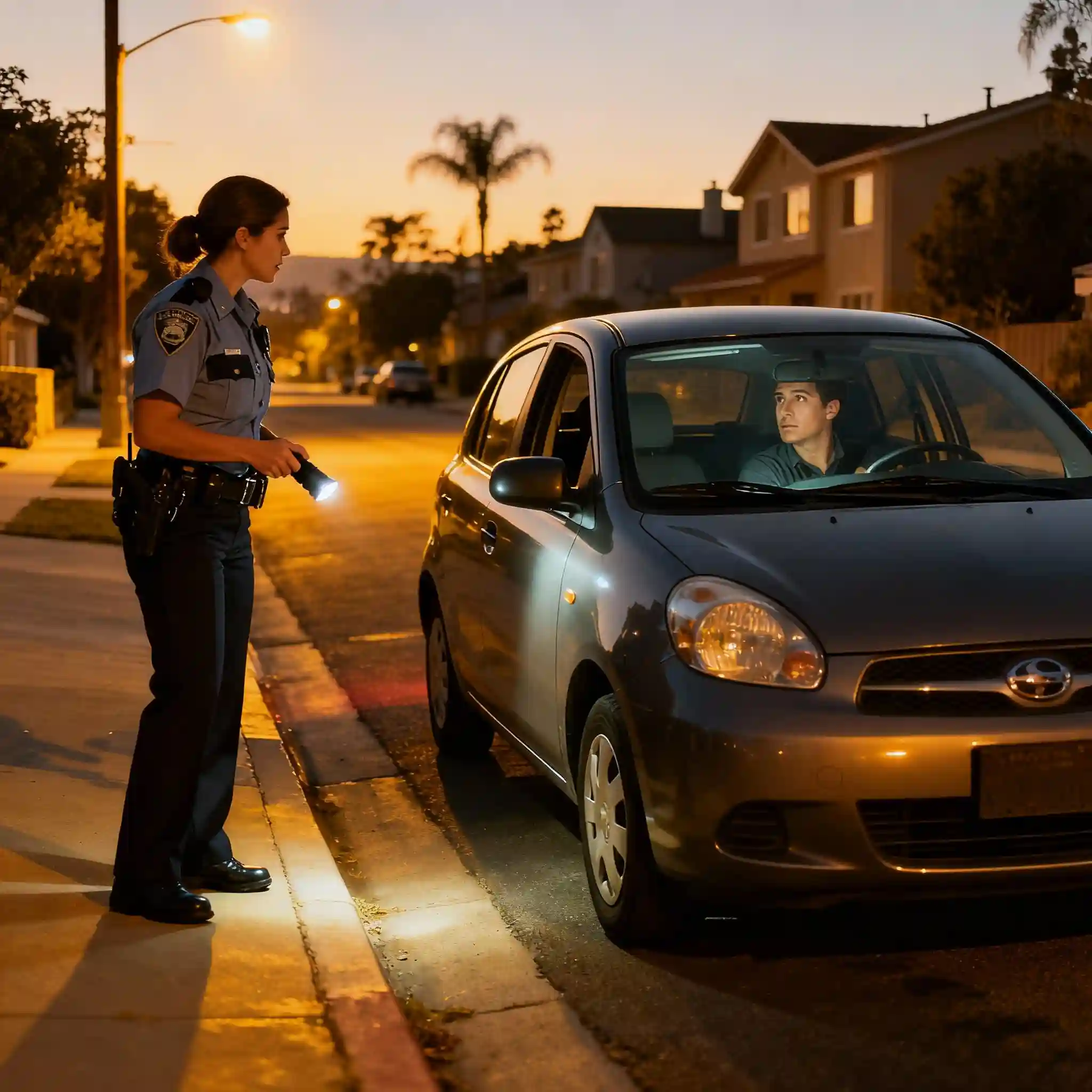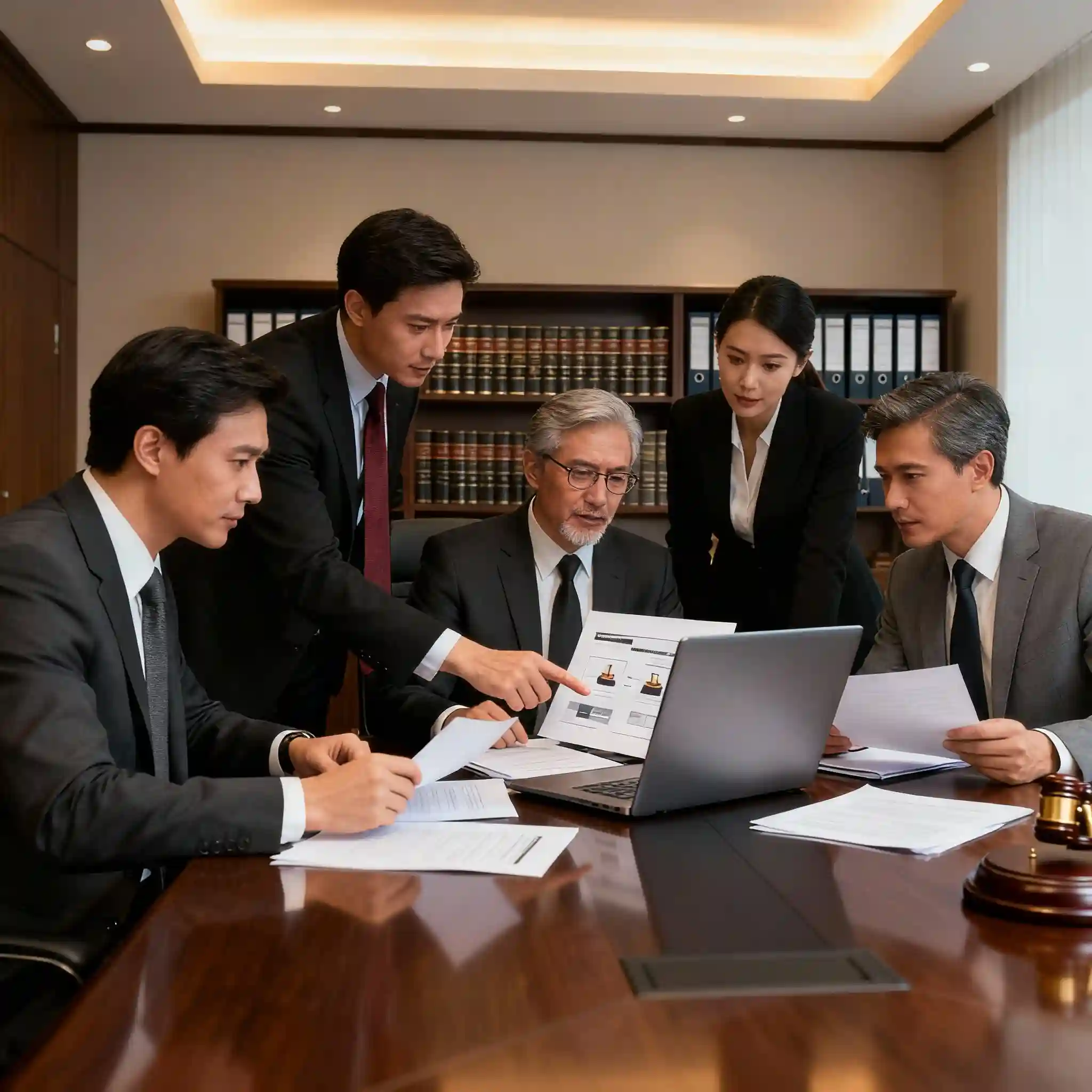

When you're pulled over by law enforcement in California, one of your greatest concerns may be whether police have the right to search your vehicle. Understanding California's vehicle search laws is crucial for protecting your constitutional rights and knowing when law enforcement has overstepped their legal authority. At H Law Group, we have extensive experience defending clients whose Fourth Amendment rights have been violated through illegal vehicle searches, and we understand the complex legal landscape that governs when police can and cannot search your car.
California's vehicle search laws are grounded in the Fourth Amendment to the U.S. Constitution, which protects citizens from "unreasonable searches and seizures." This fundamental protection means that law enforcement generally cannot search you or your property without a valid warrant based on probable cause.
The Fourth Amendment provides that "The right of the people to be secure in their persons, houses, papers, and effects, against unreasonable searches and seizures, shall not be violated, and no Warrants shall issue, but upon probable cause, supported by Oath or affirmation, and particularly describing the place to be searched, and the persons or things to be seized."
California Constitution Article I, Section 13 provides even stronger privacy protections than the Fourth Amendment, stating that "The right of the people to be secure in their persons, houses, papers, and effects against unreasonable seizures and searches may not be violated."
While you have strong privacy rights in your home, the courts have long recognized that you have a reduced expectation of privacy in vehicles for several reasons:
However, this reduced expectation of privacy does not mean police can search your vehicle at will. Law enforcement must still have legal justification for any search.
California law recognizes several exceptions to the warrant requirement that allow police to search vehicles under specific circumstances. Understanding these exceptions is crucial for knowing when a search is legal and when your rights may have been violated.
Voluntary Consent is one of the most common bases for warrantless vehicle searches. Police can search your vehicle without a warrant if you voluntarily agree to the search.
Key Requirements for Valid Consent:
Important Rights Regarding Consent:
Recent California Developments:
Assembly Bill 93, which took effect in 2024, prohibits California law enforcement from asking for consent to search a person or vehicle during routine traffic stops unless they have evidence-based legal justification for the search. This significant reform addresses the discriminatory impact of consent searches, which disproportionately affected communities of color.
The Automobile Exception, established in Carroll v. United States (1925), allows police to search vehicles without a warrant when they have probable cause to believe the vehicle contains evidence of criminal activity.
Probable Cause Defined:
Probable cause exists when facts and circumstances would lead a reasonable person to believe that a crime has been committed and that evidence of that crime is present in the vehicle. This standard is higher than reasonable suspicion but lower than proof beyond a reasonable doubt.
Common Sources of Probable Cause:
Scope of Automobile Exception Searches:
When police have probable cause to search a vehicle, they can search:
Example Scenario:
During a traffic stop, an officer smells a strong odor of marijuana coming from a vehicle. This odor provides probable cause to search the entire vehicle for drugs, including any containers or bags that could reasonably contain marijuana.
Search Incident to Arrest allows police to search certain areas of a vehicle when they have made a lawful arrest. However, this exception has been significantly limited by recent Supreme Court decisions.
Historical Rule (New York v. Belton):
Previously, police could automatically search the passenger compartment of any vehicle when they arrested an occupant, regardless of circumstances.
Current Rule (Arizona v. Gant):
Police may only search a vehicle incident to arrest when:
Practical Impact:
If police arrest someone and immediately handcuff them and place them in a patrol car where they cannot access their vehicle, they cannot conduct a search incident to arrest unless they reasonably believe the vehicle contains evidence of the arrest offense.
Plain View Doctrine allows police to seize evidence that is clearly visible during a lawful observation. This applies to vehicle searches when officers can see illegal items from outside the vehicle.
Requirements for Plain View Seizure:
Application to Vehicles:
Limitations:
Protective Searches based on Terry v. Ohio allow limited searches for weapons when officers have reasonable suspicion that occupants may be armed and dangerous.
Vehicle Terry Searches May Include:
Factors Supporting Protective Searches:
Inventory Searches occur when vehicles are lawfully impounded and police conduct standardized searches to catalog contents.
Requirements for Valid Inventory Searches:
Common Impoundment Situations:
Limitations on Inventory Searches:

Certain situations present unique considerations under California vehicle search law, requiring specific understanding of how general principles apply.
Passenger Standing to Challenge Searches:
Searches of Passenger Belongings:
When police have probable cause to search a vehicle, they can also search passengers' belongings found in the vehicle if those items could reasonably contain the evidence being sought (Wyoming v. Houghton).
Passenger Consent:
DUI Arrest Scenarios:
DUI arrests present unique vehicle search considerations:
Blood and Breath Tests:
While not vehicle searches per se, DUI investigations often involve searches for evidence of intoxication:
Enhanced Regulation:
Commercial vehicles are subject to additional regulations that may affect search authority:
Residential vs. Vehicle Classification:
Motor homes present unique challenges because they serve both transportation and residential functions:
When police conduct unlawful vehicle searches, the evidence obtained may be suppressed (excluded) from court proceedings under the exclusionary rule.
Legal Basis:
California Penal Code Section 1538.5 provides the mechanism for challenging illegal searches and seeking suppression of evidence.
Grounds for Suppression:
Burden of Proof:
Challenging Consent:
Attacking Probable Cause:
Procedural Violations:

Understanding how to properly exercise your rights during police encounters can prevent illegal searches and protect your interests.
Your Rights:
What You Should Do:
What You Should Not Do:
Documentation:
Legal Representation:
California's vehicle search laws continue to evolve through legislative changes, court decisions, and policy reforms that affect your rights and law enforcement authority.
Assembly Bill 93 (2024) - Consent Search Restrictions:
This landmark legislation prohibits law enforcement from requesting consent to search during routine traffic stops unless they have evidence-based justification:
RIPA (Racial and Identity Profiling Advisory Board) Data:
California's data collection on police stops reveals significant disparities in consent search requests:
Recent California Supreme Court Cases:
Federal Circuit Court Developments:
Departmental Policy Changes:
Many California law enforcement agencies have updated policies regarding vehicle searches:
Technology Integration:
Modern vehicle searches increasingly involve technological considerations:
California's vehicle search laws represent a complex balance between law enforcement authority and individual constitutional rights. While police have significant power to search vehicles under certain circumstances, these powers are not unlimited, and violations of your Fourth Amendment rights can provide strong defenses against criminal charges. Understanding your rights during vehicle encounters is essential for every California driver and passenger. You have the right to refuse consent to searches, to remain silent during police questioning, and to challenge illegal searches in court. These rights are meaningless, however, unless you know how to exercise them properly and have experienced legal counsel to protect your interests when violations occur.
Vehicle searches can have life-changing consequences, affecting your freedom, your career, your family, and your future. Don't let constitutional violations go unchallenged, and don't face these serious legal matters without experienced advocacy on your side.
References
United States Constitution, Fourth Amendment
United States Constitution, Fifth Amendment
California Assembly Bill 93 (2024)
California Racial and Identity Profiling Act (RIPA)
Riley v. California (2014) 573 U.S. 373
Miranda v. City of Cornelius (9th Cir. 2005) 429 F.3d 858
Please note that the information provided in this article is for general informational purposes only and does not constitute legal advice. California’s vehicle search and seizure laws are complex, constantly evolving, and depend heavily on the specific facts of each encounter. This content was last reviewed and updated by our legal professionals in October 2025 to reflect the current state of the law, including new restrictions on consent searches under AB 93. The application of these rights can vary by jurisdiction and the circumstances of your stop. For personalized advice from an attorney regarding your specific situation, we strongly encourage you to contact the H Law Group for a free, confidential consultation.
Yes, but only under specific exceptions: consent, probable cause, search incident to arrest, plain view, protective (Terry) searches, or inventory searches of impounded vehicles.
Yes. You have the right to clearly state, “I do not consent to any searches.” Refusing cannot legally be used as evidence of guilt.
Evidence obtained unlawfully can often be suppressed in court under California Penal Code §1538.5, potentially leading to case dismissal or reduced charges.
Passengers generally cannot challenge searches of items they don’t own, unless they have a personal property interest. Personal items like purses may be protected.
We evaluate the legality of searches, gather evidence, file suppression motions, and provide aggressive representation at hearings and trial.